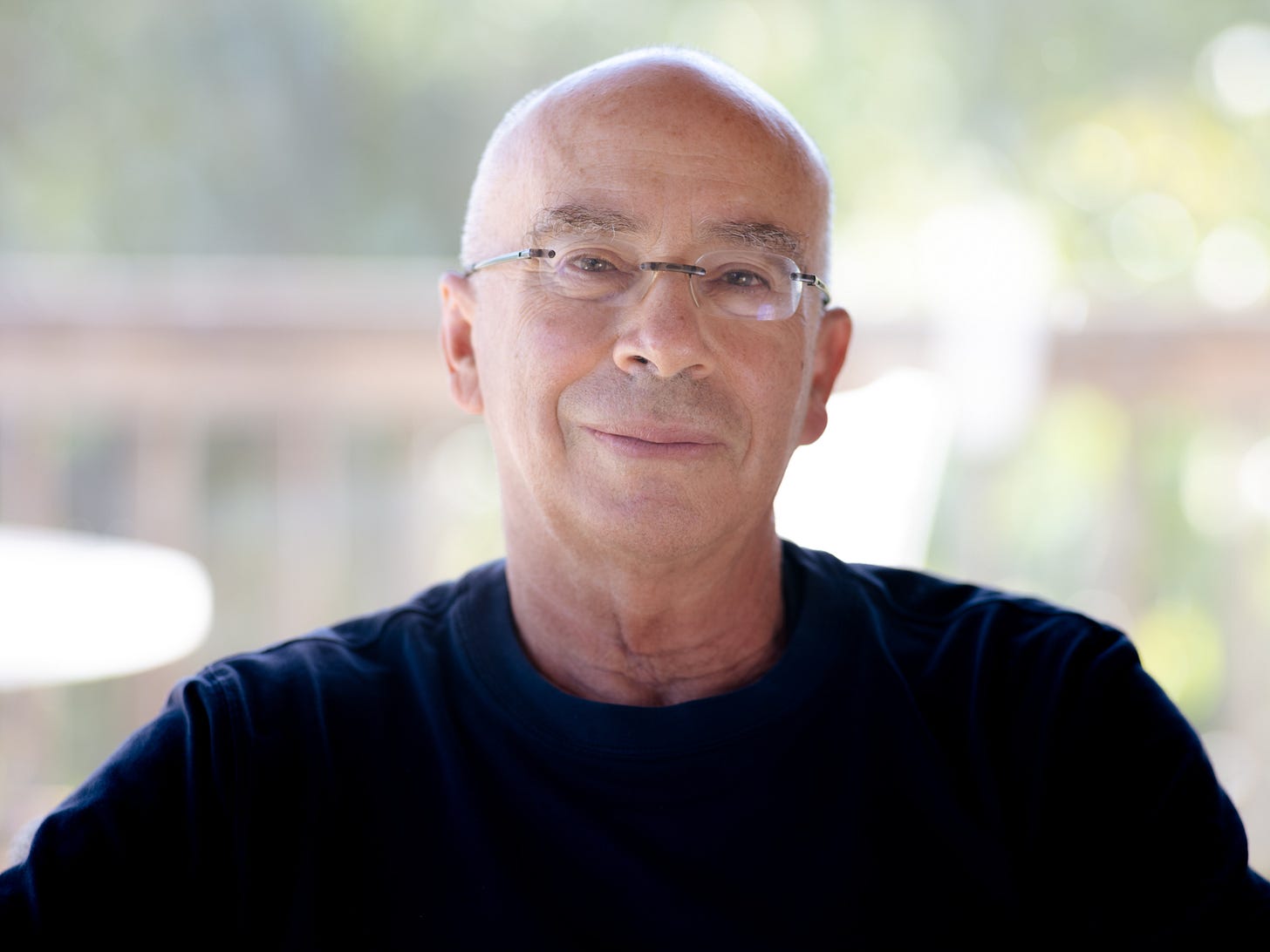“The fundamental problem is that this attitude towards time sets up a rigged game in which it’s impossible ever to feel as though you’re doing well enough. Instead of simply living our lives as they unfold in time – instead of just being time, you might say – it becomes difficult not to value each moment primarily according to its usefulness for some future goal, or for some future oasis of relaxation you hope to reach once your tasks are finally ‘out of the way’”…
- Oliver Burkeman, 4,000 Weeks, Time Management For Mortals
Insights Into Practice - Time
Podcast Conversation With Oliver Burkeman
Half Day Retreat, July 13th
What I’m Watching - Richard Baker, Living In Relationship
There is a story, that may be about time, from David Foster Wallace’s 2005 commencement speech:
There are two young fish swimming along.
They happen to meet an older fish swimming the other way, who nods at them and says:
“Morning, boys. How’s the water?”
The two young fish swim on for a bit.
Eventually, one of them looks over at the other and says:
“What the hell is water?”
We humans are often like fish swimming in the sea of time. What we call time is invisible, ungraspable, and yet is so intertwined with our being, it can be easy to forget its essentialness. We struggle with, or forget about, or are just confused or terrified by time.
In the introduction to Oliver Burkeman’s best-selling book he says:
“The average human lifespan is absurdly, terrifyingly, insultingly short. Here’s one way of putting things in perspective: the first modern humans appeared on the plains of Africa at least 200,000 years ago, and scientists estimate that life, in some form, will persist for another 1.5 billion years or more, until the intensifying heat of the sun condemns the last organism to death. But you? Assuming you live to be eighty, you’ll have had about four thousand weeks.”
He goes on to say:
“Our troubled relationship with time arises largely from this same effort to avoid the painful constraints of reality. And most of our strategies for becoming more productive make things worse, because they’re really just ways of furthering the avoidance. After all, it’s painful to confront how limited your time is, because it means that tough choices are inevitable and that you won’t have time for all you once dreamed you might do. … And so, rather than face our limitations, we engage in avoidance strategies, in an effort to carry on feeling limitless. We push ourselves harder, chasing fantasies of the perfect work–life balance…”
What to do? Practice.
As Ram Dass so eloquently says in the title of his book from the 1970’s -- Be Here Now!
Or as Zen teacher Thich Nhat Hanh teaches - explore practicing the Seven Miracles of Mindfulness. These could be called the Seven Miracles of Not Avoiding Impermanence:
1) Be present - Notice you are here, alive, breathing. Just appreciate being alive. This requires stopping, stepping out of the stream of busyness, doing, worrying, and achieving. It starts with noticing when you are not present. Meditation is the most effective way I know to be able to do this…
2) Notice others - Be aware that you are not alone. Be curious about other’s experience.
3) Nourish others - Practice kindness. How can you support others?
4) Aspire to relieve other’s suffering - Allow the intention of healing to arise.
5) Look deeply - Go beneath the surface of your awareness. What are you feeling?
6) Cultivate Understanding - explore the deeper questions of what brings you here? What really brings you here? How are you swimming in time? What matters most?
7) Transformation - As the next moment arises, now what? What’s possible? Practice with warmhearted wonder and curiosity.
“Practicing the Seven Miracles of Mindfulness helps us lead a happy and healthy life, transforming suffering and bringing forth the peace, joy, and freedom.”
- Thich Nhat Hanh
Podcast Conversation With Oliver Burkeman
Oliver Burkeman is an acclaimed journalist, author and thinker whose work offers a refreshing perspective on productivity, time management, and the pursuit of a meaningful life. He is the author of 4,000 Weeks, Time Management For Mortals.
Why Listen:
1. Discover how rethinking your approach to time can lead to a more fulfilling and productive life. Oliver Burkeman shares insights from his book "4,000 Weeks" on the unrealistic standards we set around time and how embracing our finiteness can liberate us.
2. We discuss how Zen philosophy can help you move beyond mere intellectual understanding and foster a deeper, more intuitive approach to life's challenges.
3. Explore the delicate balance between maintaining control and encouraging creativity within your team or organization. Marc and Oliver discuss how letting go of excessive control can actually enhance innovation and productivity.
Tune into the full episode of "Mindful Leadership" to dive deeper into these topics and the exploration of a more present and impactful way of living.
Half Day Retreat, Sunday, July 13th, In Person and Online
In our world of busyness, of more/faster/better, this half-day retreat offers time to stop, reflect, and renew. We will explore the practices of effort and effortless as a path to well-being and “stepping into your life.” Together we’ll follow a gentle schedule of sitting and walking meditation, a talk, and some discussion. Anyone looking to begin or deepen a meditation and mindfulness practice is invited to attend.
What I’m Watching: Dharma Talk, Video
Richard Baker, Living In Relationship
Richard, Baker-Roshi was my Zen teacher for the 10 years I was a resident of the San Francisco Zen Center. He recently gave this talk at the City Center. He addresses how our primary objective in Zen is to prevent war and that we do this by living in relationship.
Warmest regards,
Marc





